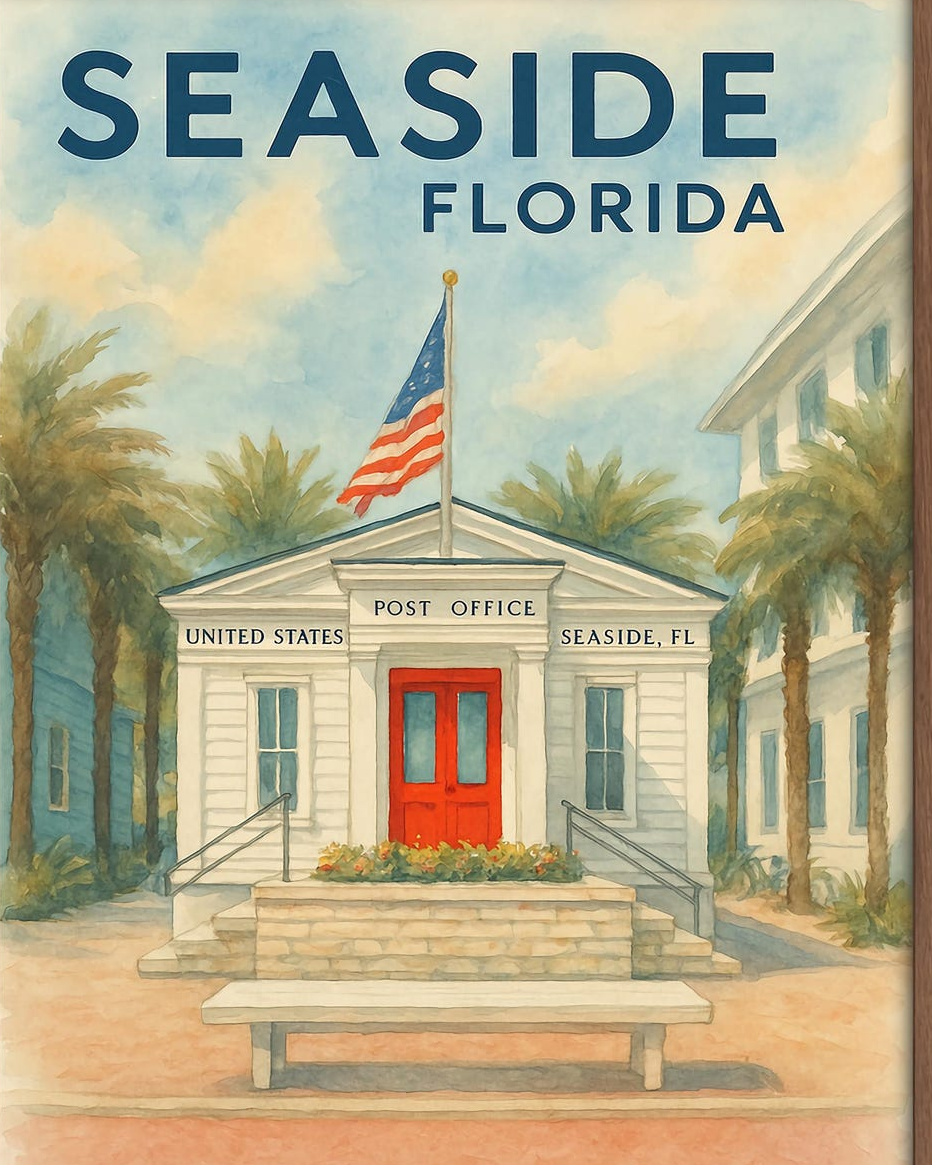Florida Lessons (inspiration from the sunshine state)

Florida is a fairly large USA state, not far from the Caribbean. Yet despite being thousands of miles away, there is so much that we can learn from ‘the sunshine state’, not least in its can-do positive attitude of local people, who are cleaning oil spills, protecting wetlands and creating ‘planned communities’ that are almost perfect places to live!
Floridians Look After Their Wetlands

England’s wetlands are in trouble (we have lost most of them due to building and farming methods), which has led to plummeting numbers of wading birds and dragonflies/damselflies, and more floods.
Not so in Florida. The Everglades (one of the world’s largest wetlands) are looked after with love and care. You won’t any locals dropping litter, having bonfires or releasing balloons, fireworks or fire lanterns.
These slow-moving rivers of grass that cover nearly 2 million acres have many volunteers who keep the wetlands clean and protected, to help all native creatures from alligators and flamingos to spoonbills and ospreys.
Beautiful Planned Communities

The USA is way ahead with so-called ‘New Urbanism’, which builds planned communities that are walkable and with beautiful buildings, strong communities, independent shops and green spaces.
Read up on pet-friendly gardens and wildlife-friendly gardens. Also know trees to avoid near horses (including yew & oak).
Seaside (featured in The Truman Show film) was planned by architect Andrés Duany, and although expensive, is a wonderful inspiration on how to build a new town. The beautiful buildings sit on the coast, with old-fashioned porches, to watch the sunrise or sunset.
On Main Street, the post office to the cinema are designed in gorgeous Art Deco style, and the multi-faith church is open to people of all faiths.
Celebration again has a lovely main street and beautiful buildings, and lots of green spaces for people and dogs. The houses are designed so that cars are ‘hidden away’ underground. So unlike in England, where nearly all towns and villages are marred by dozens of cars parked on the street.
This creates walkable communities, with lower air pollution and better mental health (the town has an extremely low crime rate).
The Villages Retirement Community has beautiful affordable homes, designed with wide pavements, with car-free zones and nature trails.
It has several dog parks (all with shady covered bench areas and water stations), and all users must have microchipped dogs that are spayed or neutered, to help prevent lost pets and dog bites).
It’s known in the media for its golf courses, but it’s far more than that. The Villages has hundreds of social clubs to offer everything from tennis to dance nights. Nobody feels lonely, whether they choose to be an introvert and just enjoy the area, or get involved in everything they can!
Miami’s Free Public Transport Idea
Freebee is a wonderful idea, that we could take on board. It offers vehicles providing free public transport for locals and visitors, paid for by advertising (from small shops that get extra customers, as people can visit out-of-tourist areas to support local economies, via free transport).
The buses are well-designed (and accept well-behaved dogs). Not cheap transport – it’s totally free. This frees up income for users, who can then use the money to buy a coffee, a souvenir or explore areas to take a day out, which is good for everyone in the community (both residents and tourism).
Horseless Carriages (for tourists)
Considering England is supposed to be one of the world’s most animal-batty countries, it’s a mystery why we are so far behind on banning horse carriages for tourism. This is happening everywhere , from Spain to Mexico.
Horses used for tourism carriages can be tired and often thirsty when working, and there are massive issues with welfare (horse carriages have even recently been banned in New York’s Central Park, after a long campaign which saw many horses spooked and injured in traffic).
Old Mount Dora Carriage Company is a Florida company that uses quaint nostalgic carriages to ferry tourists and wedding guests around in the heat, leaving horses back at home in fields and stables.
Powered by people and electricity, read more on horse carriage alternatives.
What Not to Learn from Florida
Alas Florida is also the base for SeaWorld, one of the world’s most popular tourist attractions. But increasingly people are boycotting tourist aquariums, due to some wild creatures being taken from their ocean homes. Spaces are so small, it’s like you living in a bath tub for the rest of your life.
Usually held to perform tricks for tourists, the pools are too shallow, often leading to sunburn for big creatures like orcas (killer whales) as their backs stick out of the water. Many creatures have ended up dying or attacking keepers, due to stress and ill health.





